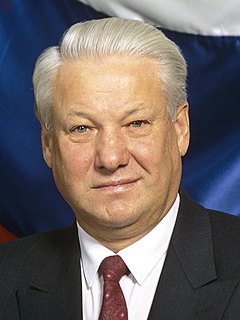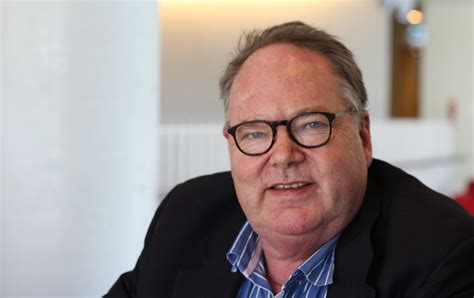A Quote by Noam Chomsky
What happened in the following years? Well, I think that among the educated classes it stayed the same. You talk about humanitarian intervention, it's like Vietnam was a humanitarian intervention. Among the public, it's quite different.
Related Quotes
On humanitarian intervention in general, I guess my view is not unlike the view that was attributed to Gandhi, accurately or not, when he was supposedly asked what he thought about western civilization. He is supposed to have said that he thought it would be a good idea. Similarly, humanitarian intervention would be a good idea, in principle.
Hoping to garner the support of the American people, proponents of regime-change wars routinely cite humanitarian concerns to justify military intervention in foreign countries. But here is the reality: As a direct result of our intervention in Iraq and the overthrow of Saddam Hussein, human suffering increased dramatically.
The humanitarian wishes to be a prime mover in the lives of others. He cannot admit either the divine or the natural order, by which men have the power to help themselves. The humanitarian puts himself in the place of God.
But he is confronted by two awkward facts; first, that the competent do not need his assistance; and second, that the majority of people positively do not want to be "done good" by the humanitarian. Of course, what the humanitarian actually proposes is that he shall do what he thinks is good for everybody. It is at this point that the humanitarian sets up the guillotine.
Think the very fact that somebody like Mike Pence is seen as useful to the [Donald] Trump campaign would be analytically a sign of difficulty for him because, you know, the Republican Party over the last two decades has needed to include his support among women, among Latinos, among blacks, among young people, and among highly educated people.


































